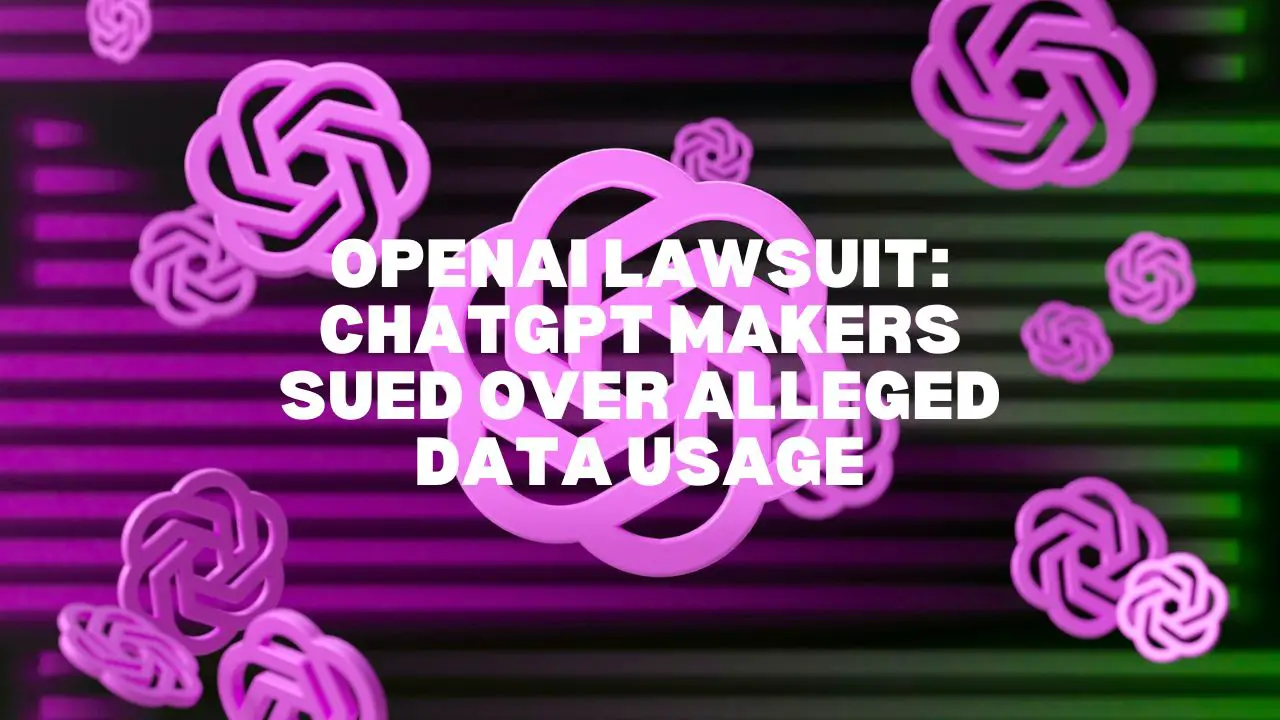Recently, a lawsuit filed in California has alleged that OpenAI, the creator of ChatGPT and other tools like Dall-E, Codex, and Whisper, used personal information without consent to train its AI models. The lawsuit claims that OpenAI accessed sensitive data, including medical records, information on children, and private conversations, in a clear violation of privacy and security.
One of the remarkable features of ChatGPT is its ability to respond to questions and write essays that resemble human-like interactions and experiences. It can even generate content that appears as if it was written by a historical figure. However, these capabilities rely on the data that the AI model has been exposed to.
Now, OpenAI finds itself facing accusations of stealing personal information from real people, as alleged in the lawsuit. The case raises concerns about the privacy and ethical considerations surrounding the use of personal data in training AI models.
The outcome of this lawsuit will have significant implications not only for OpenAI but also for the broader AI community. It underscores the importance of ensuring data privacy, consent, and the responsible use of personal information when training AI models.
Also Read: What Is EU’s AI Act and How Would It Affect ChatGPT?
What does the lawsuit say?
A lawsuit, consisting of a 157-page document, has been filed against OpenAI by anonymous petitioners. The plaintiffs, identified only by their initials, have raised serious concerns regarding the potential catastrophic risks associated with ChatGPT, an AI system developed by OpenAI. They allege that OpenAI obtained and utilized personally identifiable information from millions of individuals, without their consent, to train the AI model to be more human-like.
According to the lawsuit, OpenAI is accused of engaging in the practice of indiscriminately harvesting personal information provided by users on various platforms, without seeking consent or even notifying individuals. This means that both ChatGPT and Dall-E, another AI tool, are effectively generating profits based on the private lives of individuals who are unaware of their information being used in this manner.
The plaintiffs further argue that without this massive and unethically obtained dataset, OpenAI would not have been able to create its highly profitable generative AI technology, which is currently generating billions in revenue. The lawsuit alleges that OpenAI obtained a wide range of personal information without user knowledge, including physical location, chat conversations, contact details, search history, and even data from web browsers.
These allegations underscore the importance of ethical data practices, informed consent, and user privacy in the development and deployment of AI technologies. The lawsuit highlights the need for transparency and accountability when it comes to the use of personal information in training AI models. The outcome of this case may have significant implications for the AI industry as a whole, prompting a closer examination of data privacy and the responsible use of personal information.
Also Read: Over 100,000 ChatGPT Account Credentials Leaked
What do the plaintiffs demand?
The lawsuit against OpenAI reveals even more concerning details. It is alleged that OpenAI released its products to the market without implementing the essential measures to safeguard private data. This means that users’ personal information was exposed and vulnerable to unauthorized access.
The petitioners are demanding that OpenAI take responsibility for its actions by being transparent about its data collection methods. They are also seeking compensation for the stolen information, as well as the option for individuals to opt out of OpenAI’s data harvesting practices.
What is OpenAI’s track record on data privacy?
Recent reports have shed light on OpenAI’s use of data from YouTube, a rival platform owned by Google, to train its ChatGPT and other generative AI tools. These reports revealed that ChatGPT secretly relied on YouTube as a primary source of images, text transcripts, and audio, given its vast collection of content.
These allegations came to light following accusations that Google itself utilized data from ChatGPT to train its own AI bot, Bard. The interconnectedness of these platforms raised concerns about the potential cross-use of data between them.
Furthermore, ChatGPT faced regulatory challenges in Italy, where it was initially banned due to concerns over data privacy. The Italian government sought to protect the personal information of millions of citizens from being accessed by ChatGPT. However, the ban was later lifted after OpenAI implemented additional safeguards to address these concerns.
Japan also issued a warning to OpenAI regarding data privacy issues associated with ChatGPT, further highlighting the global concerns surrounding the use and protection of personal data.
Regarding the lawsuit, OpenAI has stated that it collects email addresses, payment information, and user names as necessary. However, the company has not provided any information about the specific data it sources from other parts of the internet to train its models.
These developments underscore the importance of transparency and accountability in the use of data by AI platforms. Users and regulators are increasingly demanding clear explanations and safeguards to protect their personal information and ensure responsible AI practices.
Also Read: How Mercedes and other companies are already using AI

Leave a Reply